|
|
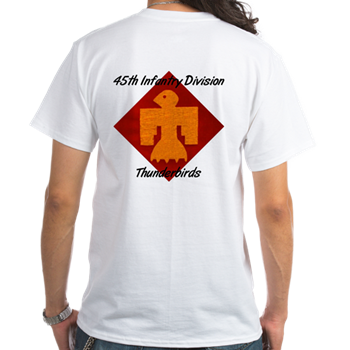
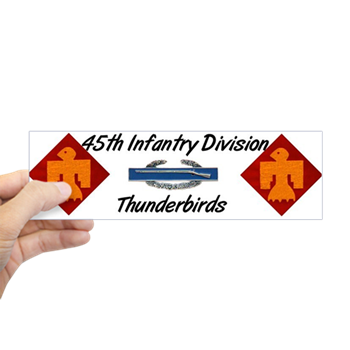
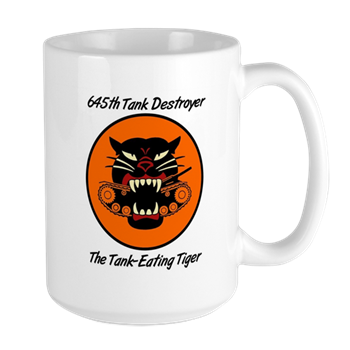
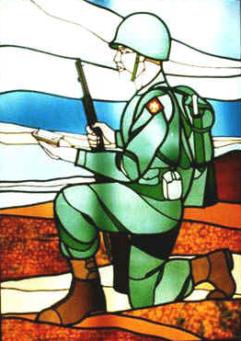 |
This is an excerpt of letters from Herb Alexander, who served in the 120th QM Company B, and his daughter. It gives a story of life's difficulties and over coming them. If not complete in details it is complete in thought.Bertha
Alexander was left with 3 small boys at home when Dempsey died. She had no skills
to make a living. She cleaned houses for people who could afford to have this
done. She took in laundry from many people. There were two or three boarding houses
in Wilson, whose managers would call Bertha when they had food left over from
their evening meal. Herbert would go to these places and bring the left over food
home to the family. The food was varied in type and a lot of very good desserts
were passed along. It was thought that the managers always threw in a little extra
food when they could. Once Bertha got a call of extra food that was available
at one of the boarding houses and she asked Ernest to go after it. He refused
to go by saying "This is below me and it is degrading to me". Bertha
then asked Herbert to go and he left willingly and came back with several dishes
of banana pudding and it was delicious. Bertha suggested that Ernest didn't deserve
any of this food. Ernest was unhappy but he did not eat any of this Pudding. | |||
| Bertha got permission to garden the vacant block across the street from her home. She always got someone to plow this space every spring. The family raised potatoes, onions, lima beans, black eyed peas, okra, tomatoes, corn, and etc on this land. There were two cherry trees, two pear trees, and 3 black walnut trees on this property. What the family did not eat in-season was either traded for other produce, or canned by Bertha for the winter. She kept the family working as best she could. However; some of the older boys left home for greener pastures. She worked this garden until her last child, Bruce, left home for the Navy. Bertha usually killed a chicken to cook for Sunday dinner. She would ring it's neck to kill it. Once Herbert offered to do this chore. He caught the chicken and held the neck in his hand, and started to swing the body around. He could feel the head separate from the neck of the chicken and the chicken started flopping around until it bled to death. He didn't volunteer to do this chore again. Many families in Wilson would raise pigs in their yards. After the first freeze in the fall of every year was pig slaughtering time. Herbert and his brothers and father helped in these operations for part of the meat. When portable-tent roller-rinks came to Wilson, Herbert visited them often. He helped people put on their skates for the Rink to pay for his skating. He became good at skating. He acted as night-watchman for the Rink when they needed him. His pay was all the "pop" he could drink and all skating fees. He thought this was an honor. This experience gave him confidence to skate with any one. He looked for places to skate in Ardmore and later in New England when he was in the military. Herbert graduated from Wilson High School in the Spring of 1940. He found no employment in Southern Oklahoma. He wanted to work his way through College. However; War clouds were forming in Europe. Herbert, along with some friends, Ray Stephenson(He was killed in action in the War), kjjJack Lewis, and Ray Mitchell( Ray was Herbert's Best Man when he married Cathy in Tulsa after the War), Joined Company B, 45th Infantry Division that was being inducted into federal service. Herbert signed up for three years. As a bonus, he got to eat lunch in Healdton that day. He thought that the Division would be out in one year, however, they were in service until the summer of 1945.
| ||||
SECOND - HOME - ArmyWe arrived at Ft Sill and were assigned to the large open field camping area west of the barracks of the military base. Our camp was set up by company and unit areas. There were pyramidal tents, 10' x 10', lined up on each side of the company street. The Company office and mess hail on one end of the street and the showers and toilets were in a stucco building on the other end about 100 yards from the office. We were assigned to 4 man tents. Bill Mauldin was in our regiment 2 years before he became a well known cartoonist. Some of the regiments were assigned to open fields and set up their pup tents until adequate pyramidal tents could be set up. Their concrete foundations had to be poured and tents could be installed, along with the necessary buildings. |
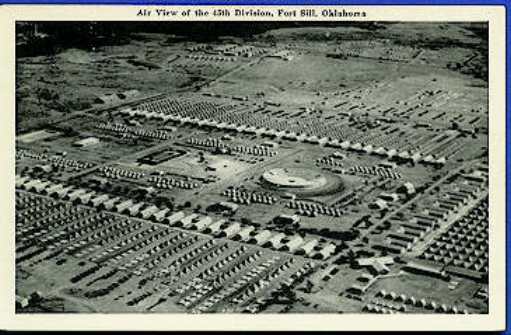 | |||
A few days after we arrived in Ft Sill, a group of troops were going to the rifle range. They handed me the keys to a 1935 Chevrolet Army truck and I convoyed with other trucks and picked up the troops and took them to the rifle range. A Sergeant, who was in charge of the troops, rode in the cab with me to the range. I looked over at him and said "Would you believe that this is the first time in my life that I have ever driven?" He looked at me in disbelief and said nothing. I noticed that the Sergeant rode back to camp in another truck. I thought I did well for my first driving experience. We started our basic training of drilling, exercise, and learning about the 1903 Springfield, bolt action rifle and other rifles and pistols. The hikes included full field packs and rifles. The pack included one blanket, one shelter half for a pup tent, toilet articles and a change of clothing. Once when we returned from a hike, the CO had us line up in the company street and he ordered the worst goof-off in the outfit, Frank, to step out and the CO asked him, "Private, what is in your back-pack?" Frank said "Sir, did you ask me what was is in my pack?" The CO said, "Yes, Private, name the articles you have packed in your pack?". Frank said "Aww..w..w..., well Sir, you see I packed in the dark". The CO, "Private, I don't think you know. Take the pack off and unroll it in front of the company". Frank started to move as slow as he thought he dared. When he finally unrolled the pack, there was s shelter half with a log from the fire wood pile and the whole company roared with laughter. Frank quickly said "Sir, those SOBs did this to me again. They always try to get me into trouble". The log, was from a cottonwood tree and when dry, was very light. (Almost as light as balsa wood). | ||||
As
penalty, Frank walked the company street for eight hours a day for two weeks,
with full pack and rifle. He walked up the company street, stopped at the office
end, unrolled the pack and set up for field inspection. Sometimes, someone would
come out of the office and check the display. Frank then had to repack the gear,
walk the street again and do everything all over again. This cured Frank; he had
the knack of always trying to fool someone, so we had a lot of laughs at his expense.
I wondered how he made it to the end of the war, but I was moved into a detached
group and lost track of Frank. |
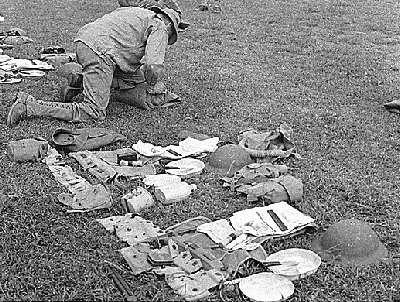 | |||
| We fired 03 Springfield's on the range for practice and then for evaluation. I got a Marksman's medal from my tests. This brought a lot of jokes from my buddies. Most of the men grew up with guns, trained by a father or brothers on hunting and safety. We had a few city boys who had never held a gun and had a tough time learning to shoot. Their biggest problem was fear of the gun because it had a good "kick", if you didn't hold it firmly against your shoulder. | ||||
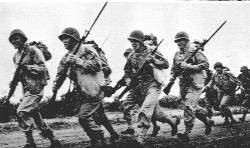 | We also had training in the use of a bayonets and how to cut a man's throat with a knife in hand-to-hand combat. Obstacle courses of all types were used in training. One had machine guns firing about 3 feet over our heads, as we crawled through barbed wire. If we stood up, it might be our last move, but we never lost anyone. | |||
I gained 30 lbs in 3 months during basic training, and was tough as nails. (I was hungry most of the time before I enlisted). We moved to Camp Barkeley, Texas, near Abilene, for continued training in all types of terrain and weather. The camp was set up as it was in Ft Sill. In late 1940, we moved to Louisiana for Maneuvers. We stopped one night and camped in a field near Dallas on the way to Louisiana. Many people, from nearby towns came out and each family took 2 or 3 soldiers out to dinner and some type of entertainment. The whole nation did everything they could to help the GIs. One family took 2 of my buddies and me out to dinner. They had two daughters. At the end of the evening, each girl wanted to kiss each GI. I wasn't comfortable with this and so stated. The family was surprised, but told me they saw my point and bid us a pleasant goodnight. When we came back through after the maneuvers, we stopped in the same spot. The citizens didn't show up and my buddies blamed me (In jest). All of us missed them. While in Louisiana on the maneuvers, the CO pulled a surprise gun inspection. We hadn't fired the guns and no one had cleaned their gun, but the humid atmosphere caused corrosion in every gun. We had to clean the rust out and oil the surfaces. I was the only one in our group that did a good job in cleaning my Colt 45 pistol. The CO pointed this out to my buddies and they had a few choice words to say to me about being loyal to the group. We continued our training at Camp Barkeley. It became very boring, but necessary.
| ||||
| We moved from Camp Barkeley to Ft Devens, Mass, where we trained in beach landings. We enjoyed our stay in New England. We ate our first sea food and swam in sea water. We cooked crabs, that we caught, in a tin can over an open fire on the beach at night. Once when we were in a landing boat approaching the beach, we saw two sharks in the water and took our time in landing. One soldier, who wasn't very smart, said he would like to get in the water with a knife with those sharks. He never did try it, for he was a big mouth. Several local citizens came out to see us. They were dark skinned and spoke what sounded to me to be Spanish. One of my friends from Boston said they were speaking Portuguese. They helped us catch the crab and cook them. They were very interesting to meet. I could not eat any of the crab, because of my meat, potato, bread, and bean back ground. This was my loss. |
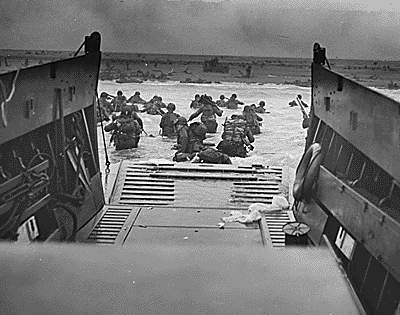 | |||
Herbert lacked self worth for most of his young life. When they were stationed in Fort Devens, Mass., He and his friend, Jack Lewis, would hitch-hike to Nashua, New Hampshire on weekends to visit the amusement park. It contained a roller-rink. Herbert met a girl from Providence, Rhode Island. She was very nice and they attended a Glenn Miller concert on a lake in that area. The scene and music were beautiful. She invited Herbert to come down to Providence to meet her parents for a week-end, She wanted him to bring a friend for her friend. It embarrassed Herbert and he couldn't bring himself to go. However, Jack Lewis went and returned to tell of the girl's large family home and probable wealth. The Division was shipped out very soon and there was no further contact with this girl. Herbert has wondered about what would have happened if he had gone. He thought that it might have been nice to live in New England after the war. This taught him not to be so self conscious in the future. (A good lesson in his relationship with people). She was the first girl that he really enjoyed talking with on any subject. (She listened). Civilians everywhere went out of their way to show their care for the men in the military. Herbert thought of this in his decision not to see her again. Sympathy would not have lasted. We moved to Pine Camp, N.Y. for cold weather training. It was the coldest winter I have ever experienced. We fired 50 cal machine guns on the range in -50 degrees F. weather. We had fleece lined mittens with a slit for our trigger finger. We had snow storms that kept us in camp for two weeks. We were in barracks, but we couldn't get the temperature above 4o degrees. We moved from here to Camp Pickett, Va., and we were getting ready to load out for Europe. | ||||
Click on Map for larger image | Sicilian Invasion (As I remember it)The 45th Infantry Division came from the United States, and disembarked in North Africa to regroup and get their land legs back before the Sicilian Invasion. We had a speech by Patton to prepare us for the encounter. Navy Cruisers and destroyers shelled the beaches and Nazi defense facilities in Southern Sicily, before we landed on the beaches. | |||
We loaded on the transports and had LSV (Landing Ship Vessels) and LST (Landing Ship Tanks) that took our troops and equipment from the ships to the beaches between Scoglita and Gela at 4:25 AM, July 10, 1943, and moved quickly inland. There were some unknown sand bars and rocks under water offshore and the Landing crafts ran aground. They let down their front ramps and the soldiers hit the water and swam ashore and walked up the beach, formed in their units and went inland. For the first night we took over a private villa about 5 or 10 miles inland. The finance personnel had the next Division payroll in strong boxes in a LST and it was swamped with sea water. They asked us if they could use our second story balcony which has a wrought iron fence railing around it. They spread the money out about 6 inches deep, and as the breeze and sunshine dried the top layer, the personnel gathered the bills up, counted them, and put them in dry strong boxes. We heckled them, with a lot of jokes about the money, however they recovered every bill. (This was invasion money, printed by the United States in Lira at a premium rate of exchange for U.S. troops.) The third day we moved on into Sicily. The kitchen crew dug the slit trench for the garbage pit at our new location and the soldiers dug fox holes and set up pup tents for the night. At 2230 hours all hell broke loose. Planes were overhead, the navy and all troops were firing with all types of guns at the planes. One plane was on fire and I saw a large white star. We hollered for everyone to stop firing because the planes were ours. One of these planes crashed about 200 yards from us. When daylight came, we went out to the crashed glider. It was just a ball of plane parts and bodies of paratroopers. Bob Evans, my sensitive friend, started to moan and cry, "And to think, it was done with our own guns!" I hollered "Shut up Evans, we all feel the same way and don't magnify it". We found out later that these paratroopers were going to land behind the Nazi lines and cut them off from retreating. We had been using the Port of Gela and the Nazi planes came in for a bombing raid, and the paratrooper planes and gliders came in, off course, right behind the bombing raid. This event was a temporary blow to the military effort in this area. There were 526 paratroopers killed in this tragedy. The scenes of that night and the next day are still vivid in my memory. One story was told that one paratrooper bailed out and as he came down with his parachute,. he was seen by a ground trooper in a fox hole, (Both of these guys were scared.) who unloaded his M- 1 rifle at him. The paratrooper landed 20 yards from the fox hole and pulled his parachute over him. As it got light at dawn;, there was a lot of hollering going on. Both the paratrooper and ground soldier looked out and began to realize that they were both Americans. When the action started the night before, the CO (A man with a large body and small skinny legs heard the planes and guns firing. He hit the first ditch he could. It happened to be the garbage pit. He was fortunate that we only had the garbage from one meal in the pit. This tragic event was not mentioned in the American Newspapers at the time. One afternoon, when the 45th Division was camping in an olive grove in the Northern part of Sicily, an Executive administrative officer from HQ came by Herbert's tent. He had a file folder in his hand. He asked Herbert if he knew what his AGCT score was. (Herbert did). He suggested that Herbert apply for an appointment to West Point. He said for Herbert to come by his office and they would fill out the paper work, get the CO to sign it, and send it in. Right after this, the Division was sent to the Salerno beach head for the Italian invasion. The subject was forgotten. Herbert never regretted this until years later. When Herbert was in Italy, he was exposed to the Catholic religion almost constantly. He studied this religion and enjoyed the strict discipline that it first seemed to have. However, he stopped studying the Catholic religion and began to think of himself as a practical person that depended on facts, science and logical thinking to analyze his thoughts. He believed this for a long time, and became an engineer after the War and thought analytically to find solutions.. This analysis dominated his thoughts until his two children, David and Cynthia got into their teens. David started to attend other Churches with friends or by himself. Herbert's family attended the Preston Hollow Presbyterian Church in Dallas part of the time. Both David and Cynthia found their religion and began praying for their parents. Their prayers got their father to start thinking about a true Christian life. They helped him find a living GOD. Cathy was a good influence on Herbert. She kept praying for the family. Herbert did not have a chance to do anything but go back into the Church seriously Herbert and Cathy regularly attend Memorial Drive Presbyterian Church in Houston. They enjoy the Christian Education and the outstanding quality of the ministers and the staff. The staff is truly dedicated. The caring and support that this Church and it's members gave Cathy and Herbert during the illnesses of Herbert were really gifts from GOD. | ||||
DachauAfter the war ended, we required the citizens of Munich to go through Dachau to see what the Nazis did to people.This camp and many others like it in Germany are examples of what the Nazis would have done to the whole world if they had not been stopped. The people of Munich, when they went through Dachau, looked neither right nor left and in latter years refused to admit that a camp like this ever existed. Even the most liberal or cynicle of the news media had to admit that World War II was necessary. Dachau had such an odor that it could not have been ignored by honest people, who were within 5 miles of the camp. |
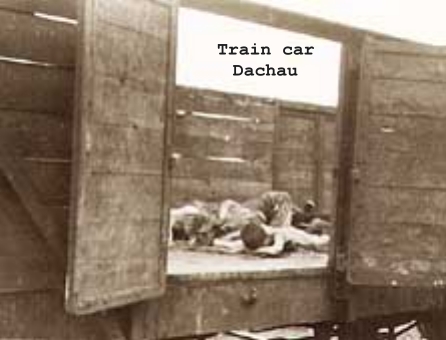 | |||
I have no pictures of the mass of bodies in Dachau. The History of the 45th UInfantry Division had no pictures of these bodies. The Death Camp Museums have many pictures that show what life was like in these camps. These scenes will forever be etched in my memory, however. It is understandable that anyone born in the 1960's, or after, would have a difficult time in believing that Dachau existed, but IT DID!
| ||||
Homes and going Home!When we went overseas, we lived in pup tents most of the time, except when we had a chance at living indoors. In Sicily we had a 2 story villa for a few days. In Benevento we were in a school complex, in Vairano, we lived in a barn and had an office in a house. During a rest period, we lived in a school, in the Naples area. In Grenoble, we were in a steam heated convent. A few nuns stayed there when the armies passed through, in the winter time. In Haguenau, we had a school house and in Munich, we had a Nazi Army barracks. We had our kitchen in the parking lot and we lived in the barracks' rooms. I have a fencing sword, a cavalry dress sword, and a cavalry bayonet that are on my fire place mantle in my home that I found in this compound. When the war ended, the military was spread out over Europe to clean up any pockets of Nazis, that might be found. We moved to Innsbruck, Aus. We had fresh pork and beef. We also took a cog-wheel train up through a mountain ro a ski resort hotel in the Alps. Some men went out to ski. For we "flat Landers" rode a cable car gondola up to a mountain peak to observe the beautiful scenes of snow covered mountains. In Innsbruck, we stayed in houses that we took over. Our "Homes" during the war varied widely and helped us develop to be rugged. Having a depression background, we did not feel that our living conditions were hardships. The civilian army had beaten the mad dogs of the world. The war was over and we were ready to go home and get on with our lives. Most of the men in my unit had over the qualified "points" to go home. However; the younger recruits with very low points were assigned to units that were going back to the U.S. to be re-equipped, trained, and sent to the South Pacific. So they left for the States. By the time they got back to the States, the war was over against Japan and they got out of the service before we did.
| ||||
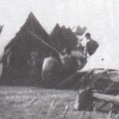 | We
were sent to Camp St Louis, France to be sent home. We boarded transports to cross
the Atlantic with two people to a bunk. (Each slept 12 hours and then changed).
This was slightly irritating, but we were going home. We passed the Statue of
Liberty in N.Y. harbor. All transports were met by fire-boats, with their streams
of water going in all directions. They had bands playing, and girls waving to
the troops. It was a moment of a few tears and emotion for all of us. | |||
The Division was sent to Camp Bowie, Texas and Camp Chafee, Ark, to be discharged and take buses home. I rode a bus with Rutherford, from Ringling. It was hard to think of the future. I loafed for two months and applied to the University of Tulsa. I lost my shyness during the diversities of the war. An example: In 1999, in our Church in Houston, a very sensual girl smiled at me and I acknowledged it and smiled back. In 1939,1 would have looked around trying to see to whom she was smiling. This must be progress.
| ||||
UNIVERSITY OF TULSAI entered Tulsa University in Sept, 1945 to work towards a Bachelor of Science degree in Petroleum Engineering. Ray Mitchell, from Wilson, and I got a room together with a family about 6 blocks from the Campus. Ray was studying Geology. We ate at cafes on 11th St. and the University Cafeteria. Ray and I both made the Dean's Honor Roll our first semester. The lady of the family where we lived, was very proud of us. I went through "Rush" and joined Pi Kappa Alpha fraternity and moved into the fraternity house. We had about 8 frat members living in the house. We ate the evening meal at the house with a House-Mother who lived there and ate with us. She thought she gave us more class than we had on our own (She was right). I was the House Manager for 2 years. There was always a frat member who lived there or in town, and visited with us who always wanted to "party". The house members would always go out for a beer to celebrate any special event. The fraternity had a "Founders' Day Dance" every November and we collected food products to later distribute to the poor, as our community project. Each member grew a beard for three weeks before the dance to help advertise for food donations. In the spring we had a formal "Ball" and we rented tuxedos and our dates wore formals and we always had it at a Country Club. We took our own liquor with us, because Oklahoma was a "dry" state at that time. One time I dropped a half pint and it broke on the concrete street and I relied on friends for drinks that evening. Most all of the guys were going to school on the "GI Bill of Rights", and we got $75/mo to live on and in those days it could be done, but we had no extra spending money. Cathy and I met and she was my date for most of the frat parties. She belonged to Phi Mu and lived in a room with a family most of the time because Phi Mu did not have a dormitory. She lived in the University dormitory for her first year. The courses in college were challenging. I did well in math and science courses, except mechanical drawing. I was never neat enough for the instructor, so I would keep all of my drawings until the last minute and turn them all in together so that the instructor didn't have time to return them to me to re-do. I did well in the written part of the course and got "Bs" for my final grades for the two years I took Mechanical Drawing. In lab courses, where we performed tests and various experiments, I was always a leader and got mostly "As" for my efforts. Geology was the most interesting, where we studied fossils from ancient times and the animals they represented. Chemical Engineering courses were interesting because we studied what was happening in industry in refining and product manufacturing. The two accounting courses we had to take were good for Engineers to learn. We had a lot of conversations in the frat house that included law students, engineers, accounting students, geologists, political and language students as to the difficulties of the various courses at the University level. We had many very good professors who came from industry. By our many discussions, at various levels of society and intelligence, I gained the confidence in myself that I would need in life. When
I graduated from Tulsa University with a B.S. in Petroleum Engineering in the
spring of After I graduated, Cathy and I were married on December 17, 1950 in College Hill Presbyterian Church. Her mother, father, and family attended the wedding. We left for our honeymoon in my 1937 Oldsmobile. I re-painted it with a "wipe-on" black paint. We spent the first night in the Skirvin Tower hotel in Okla. City.The next morning, we went to breakfast and accidentally saw my boss with Chemical Process. He gave Cathy this advise, "Just do what Herbert tells you and you will have a happy marriage". We went on to Lake Murray, near Ardmore, and stayed in Cabin @73. We had the lodge almost to our selves, because it had been built by the State the year before, and it was plush. From here, we drove to Seminole, Okla. to a duplex I had rented. I started my life with Chemical Process.
2. He was proud to have earned a Batchelor of Science Degree from Tulsa University by using the GI bill of rights. He gave articles and "Papers" on his profession to organizations inside the oil industry. 3. He was proud to have saved money and invested it all of his life to provide a comfortable living for his family. 4. He was proud that he was Area Manager in New Orleans for PA Inc. He retired as an executive in 1986. 5.
He was proud to have served his country with the 45th Infantry Division in Sicily,
Italy, France and Germany during World War II. | ||||
last revision